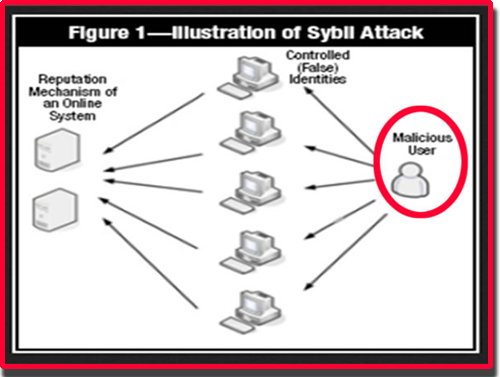
Oh look more news related to privacy.
So on the heels of Samurai devs being prosecuted... and Roger Ver... and the FBI telling everyone to KYC everything... and cooking pans being money transmitters... now we have Michael Saylor coming forward to talk about how the first thing his company is going to build on BTC is an identification system. Fascinating. It's all coming together fam.

https://microstrategy.github.io/did-btc-spec/
"The Bitcoin Inscription DID method (did:btc) uses the bitcoin blockchain exclusively to store and retrieve DID information. UTXOs on chain are used to control DIDs. Inscribing data in the witness of transactions allows for greater extensibility and verbosity when creating DID documents, while reducing fees and block space consumed."

Of course the concept of DID is nothing new.
The complications of such a technology are quite difficult... especially when they are built by, and cater to, centralized institutions. Microsoft has run into all kinds of problems creating DID. Remember Bluesky and former CEO of Twitter Jack Dorsey? He's got a plan for DID as well. Remember Dan Larimer and More Equal Animals & Voice Social? Same story. But what is the point?
One person one vote
While many people in crypto are going to immediately knee-jerk react to an announcement like this I like to take the more balanced and unbiased perspective. While an ID system in the hands of oppressors clearly leads to more oppression, isn't the entire point of something being "decentralized" is that the oppressors can't control it? Or perhaps this type of proposed network is simply "decentralized" in that it is a group of oppressors working toward the common goal of power. These are all things we have to pay attention to going forward; the devil is in the details.
One person one reputation.
It's not just voting. A good decentralized reputation system is the key to building a better Internet, and also just a better world. A lack of this type of reputation (especially online) is the foundation of all Sybil attack. Why is social media crawling with bots? Sybil attack. Why does every video game economy get exploited? Sybil attack. How do criminals or teens looking to buy alcohol get fake drivers licenses? Sybil attack.
In fact the very premise of the Byzantine Generals Problem and fault tolerance is rooted in reputation. Bitcoin was able to solve it with POW mining consensus. Miners play by the rules because it is in their best interest to do so. However, the scope of Bitcoin is quite narrow. The Bitcoin network having a good reputation and high security as a whole only solves a very particular problem.
What about all the other problems? How are we going to solve war, hunger, greed, minority rights, poverty, pollution, and overpopulation? Maybe them Bitcoin miners will hash out an answer? Unfortunately people are much more complex than that, and the systems we've built compound atop such complexity in this simulation of chaos.

The dilemma of reputation networks.
If the rules are too strict and rigid they end up filtering out too many good candidates. If those rules are controlled by an elite few we have even bigger problems. But then if the rules are too loose and permissive the scammers move in to exploit these weaknesses where ever they can. A Wild West lawless environment is not ideal in most settings, although it can still be better than the alternative end of the spectrum. Unsurprisingly balance is a key element within this discussion.
While an identification system on Bitcoin could have its uses, I think most people are much more worried at this point of how it could be misused. Honestly though having this data on-chain is going to be expensive no matter what, so we definitely have to assume that the entire protocol is opt-in.
Users would enact DID on purpose because they want to, not because they're forced to. Of course as we all know if something like this has any success whatsoever there's nothing to stop governments from passing laws that legally coerce citizens to use it (and by that time it might be too expensive for lone citizens to use anyway). Whether they can actually enforce the law is another question entirely. After all, I've never gotten a ticket for jaywalking, downloading a song, or failing to use my left-turn blinker.
What about Hive?
Aren't we closer to solving DID than these other chuckleheads? My account @edicted has a higher reputation than my name, birthday, and social security number does. Of course it took years to cultivate my reputation here, but it still undeniably exists. As the AI revolution trudges forward everyone is collectively realizing that Sybil attack and the ability for bots to act like people is going to get exponentially harder to deal with.
The difference being of course that Hive identities are not officially connected back to names, birthdays, and social security numbers. But then again how can it be called "decentralized" if the goal is to loop what we are building back into the old broken system? I'm sure they'll find a way to spin it.
Conclusion
Michael Saylor's first move after acquiring 1% of all the BTC is to create an identification system. Bold move, sir. Bold move. And while I must admit that the topic of identity and reputation exist at the very core of society itself... well let's just say I'll believe it when I see it.
I'm sure that micro$trategy partnering with micro$oft will be a super safu step towards decentralisation and that limp$oft's patent 060606 for monetisation of body fluid using cryptocurrency is not in any way a relevant concern.
Yep yep, totally not scary at all. Partnering with THE pioneer of back doors to the NSA and any kracker who cares to bother.
As a person of pink colour I am not offended by your cracker reference, but some white folks might be. Setting that aside, yes, that old cracker Gates is a huge fan of back doors!
Sorry, not the same word. Hacker vs Kracker.
Hacker is someone who takes apart things to make them do what they didn't when they can from the factory. Kracker is some who kracks into, breaks into other people's computers.
and i don't know what to do, since many people do not know the difference (because of movies)
It was a joke and a reference to a slave master ;)
Who is this Dan Larimer you talked about? 😝
DID is REALLY hard to work out.
In fact, it seems like it can't be completely decentralized.
Like real life friendship making, you need to be introduced through people you trust, to new people. Else, you have a very bothersome ratchet-step teeter-totter in building a relationship.
So, really you need a "group" mechanism. Like a personal "Wall Server" (inside out F-c-book) and on that server is your friends, and the rating you give those friends. And so, to find, and verify a new person (username, ID) you query many "groups" and maybe have your "Wall Server" watch them and report Bot like activities, or bullying, or what you have.
I do not like DID on bitcoin, because we do not have 8 billion inexpensive spaces. So, it will become DID for the rich, if Michael Saylor works it out. And godz i hope he does.
There is something like this on ETH, but for e-mail and URLs
I cant believe he is going to spam the chain with this! haha
There was a crypto a while ago called something like Gyftie. I am not sure it is still around, but it was something like a vouch to earn sort of thing. I am sure it could be exploited, but it required multiple real individuals to account for you and so on down the line. Like I said, it's probably long dead now. It was interesting at the time though.
that is worrying news, and not surprising really.
this is really about jurisdiction, and if a system has none they have to entice people into giving consent to being governed voluntarily.
i feel a lot of the confusion on people's part comes from the system-fused understanding and the omnipresent, trained use of language:
what people really mean when they say "person", is individual. but an individual is not a person. an individual can have many persons he himself has not created (such is the case with someone who holds multiple passports for example. those are created by another person, i.e. a "government" or - technically - a company).
now it could be argued that people who use hive or bitcoin have the blockchain create persons - avatars - on their behalf. but to "identify" those and equate them to a legal fiction of the old system is a mere insinuation on the system's part (namely that they are identical when they are provably not) and an act of willful ignorance on the user's if they comply.
i know you are not a person, you are a living being the system has not made. i have read your posts long enough to know you are alive, you feel and think. persons do no such thing. persons are administrative handles that are used by people in order to interact with any given system or network.
the person we have and use daily in public may have been a good idea in principle but has gone completely off the rails - it is being abused. precisely because people who see and identify themselves with that person, automatically have to follow the laws and regulations of its creator, instead of following their own. which is something we human beings just cannot seem to understand.
"my house, my rules" sort of siuation.
"legal fiction" and the concept of the "strawman" would be a great starting point of research for anyone reading this who is interested. just be aware that the system does its utmost to omit the true distinction between its fictions it has control over on the one hand - and living, breathing human beings it has no control over on the other.
thanks for the thought provoking article, that was way more than i intended to add originally.
blessings
This man is very supportive of bitcoin and we all like him because we will see that in the future because of this the whole world will recognize bitcoin.
Saylor is teetering on the edge between Bitcoin Senator and Sith Lord Emperor. I hope that you are right about opt-in etc... but governments like to govern. Saylor played the Saviour and won a bunch of people in the space over. This seems like the first time he has shown his hand... we all knew he wasn't just going to buy and hodl and talk about there being no second best forever.
More of him, good to hear
Understanding the intricacies of selfhood and standing in the technology sector is crucial. Saylor's BTC identification framework has ignited discussions, underscoring the importance of finding a harmony between safeguarding and user independence. Promising advancements on the horizon.